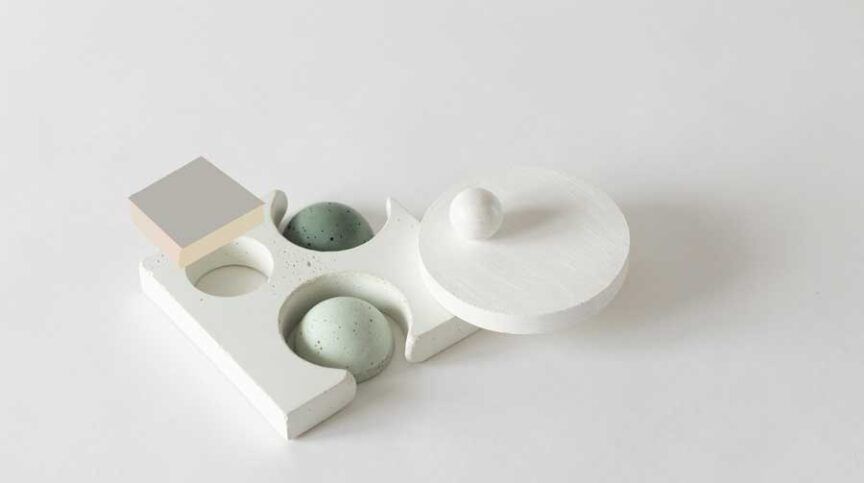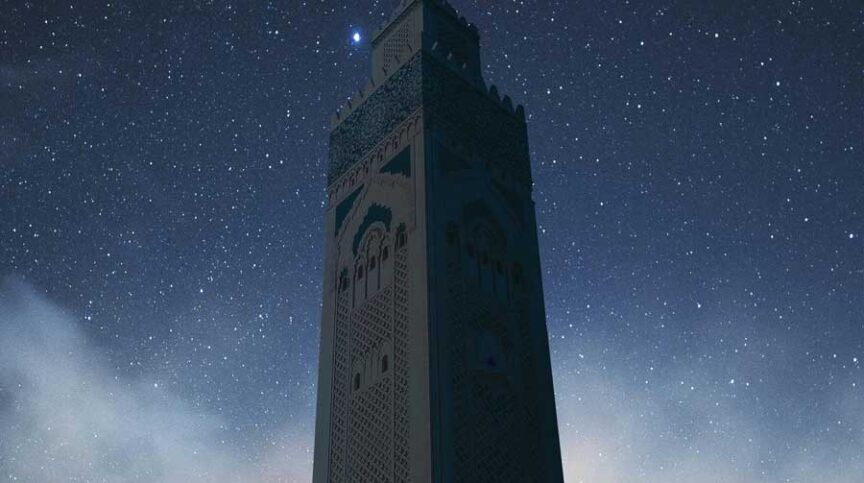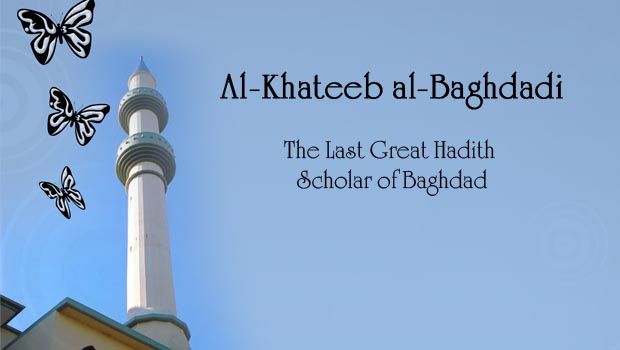Ramadan! 2017! …1438! …It’s fasting time! …All Praises are for Allah, the Almighty, and may His peace and blessing be upon His true servant and final Messenger Muhammad, on his companions and his household.
Every year as we prepare to receive the blessed month of Ramadan we are reminded of all the virtues and blessings that it brings. We hear about that in lectures, khutbahs, Ramadan programs, at home, on the social media, and the list goes on. It is important for us to remind one another of this special month. The reminders are excellent as they add to the joys, sweetness, and depth of our worship during this blessed month. But beyond all this, we must try to think of what else we can do that we have not done before, thus, making this Ramadan so very special and different from the other Ramadans that have gone by. It should not be that the blessed month of Ramadan comes and goes and we become inattentive to it or unchanged by it. Certainly this was not the way of the pious predecessors.
We are told that the sahaabah (R) used to make duas six months prior to the month of Ramadan, asking Allah SWT that they be blessed to witness it, and then they would fast and worship Allah SWT with so much intensity. Then subsequent to Ramadan, they would reflect upon their deeds and make dua for Allah SWT to accept their deeds and this would last for another several months. Then they would prepare to reach the blessed month of Ramadan again. For them, Ramadan was like the center of their lives and their daily living revolved around it. Without doubt, there is enormous benefit in hearing again and again about the great virtues related to Ramadan and how our pious predecessors benefitted from this blessed month. While we may not rise to the level of reflecting and making dua about Ramadan six months ahead of time and five months after, at a minimum, if we think that this could very well be our last Ramadan, then the question is: What more can we do to make this Ramadan a deeply spiritual and transformative experience?
First, how much more should we be grateful, and glorify and thank Allah SWT for granting us another opportunity to be witnessing this glorious month of Ramadan! Indeed, life and death are in His Hands alone. If He SWT so wished, He could have made us amongst the 57 million people who die each year. But He grants us life. He grants us this opportunity to worship Him with greater fervor. One of the companions reported that the “Mother of the Believers,” Aisha (R), would fast in the intense heat, and he was asked, “What drove her to do this?” He replied, “She would take advantage of the days before death.” Abu Ad-Dardaa’ (R) used to say, “Fast the very hot days in anticipation of the Day of Resurrection, and pray two rak’at in the darkness of night in anticipation of the darkness of the grave.” This is why Mu’adh bin Jabal (R) expressed regret on his deathbed that he would no longer experience this mid-day thirst, as did other early Muslims. This was the way of the early generations. The sweetness of fasting on a hot day during the blessed month of Ramadan was one of their most beloved times of devotion.
The Great Blessings of Ramadan
Ramadan should, therefore, be seen as a great blessing from Allah SWT and must not be taken for granted or wasted away. It is a gift from Allah SWT and Abu Hurairah narrated that Rasoolullah (pbuh) said, “My ummah was given five things for Ramadan which were not given to anyone except them”:
1. For them, the smell from the mouth of a fasting person is sweeter to Allah than the fragrant smell of musk.
Allah SWT does not judge the outward but what is deep within the hearts. Similarly, during Hajj, on the Day of Arafah, when the pilgrims are dusty and disheveled, Allah SWT grants them His forgiveness and freedom from Hell Fire. Isn’t our total dependence on Allah SWT our original state? In a hadith qudsi, narrated by Abu Zhar(R), that Rasoolullah (pbuh) said that Allah SWT said, “O My servants, all of you are hungry except for those I have fed, so seek food of Me and I shall feed you. O My servants, all of you are naked except for those I have clothed, so seek clothing of Me and I shall clothe you.”
2. The Angels seek forgiveness for those who are fasting, do so until they break their fast.
Let us think about that for a moment — the Angels are calling on Allah SWT with their duas, seeking His forgiveness on our behalf Therefore, we must be cognizant and respectful during our fasting that the Angels, who are pure, are making duas for those who are far from purity. They see it as their responsibility to make dua for us and it is our responsibility to become more conscious with our fasting. Remember when someone who is going for Hajj or Umrah asks those who are not going what they want from Makkah or Al-Madinah; they always tell them they want them to make dua for them while they are there!
3. Allah prepares and decorates a special garden in Jannah every day and then says (to it), “The time is near when faithful servants shall cast aside the great trials of the world and come to you.”
We all are reminded in the month of Ramadan of the special gate of Jannah called Ar-Rayyan, and that only those who have fasted will enter through it and no one else. Let us continuously make dua throughout Ramadan for Allah SWT to grant us Paradise through the gate of Ar-Rayyaan! And remember that Jannah is very spacious we should make dua for our brothers and sisters in faith, even naming in our dua those who are in our circle of family, friends, and acquaintances.
4. In this month the evil-minded Shaytaan is chained.
The devils are chained so as not to tempt the fasters with those evils to which they normally tempt during other months besides Ramadan. So if we still do evil during Ramadan, then this is prompted by our nafs (soul) and what it has acquired over the years. Ramadan is time to do a lot of self-evaluation and introspection. Umar (R) used to tell the companions, “Evaluate yourselves before you are being evaluated!” What better time is there to engage in self-evaluation than in the month of Ramadan.
5. On the last night of Ramadan, fasters are forgiven. One of the sahaabah (R) thereupon enquired, “0 Messenger of Allah, is that last night Laylatul Qadr?” Rasoolullah (pbuh) replied, “No. But it is only right that a servant should be given his reward on having completed his service” (Reported by Ahmad, Bazzaar and Bayhaqi).
This is a moment of real joy, as Rasoolullah (pbuh) said, “The fasting person has two occasions for joy — one when he breaks his fast because of his breaking it, and the other when he meets his Lord because of the reward for his fast.” Scholars explain that “when he breaks his fast” refers both to the end of the day when the fasting person breaks his fast, as well as the end of Ramadan when the month of fasting comes to an end.
Opportunity to Increase Our Empathy
We should also be grateful, and glorify and thank Allah SWT for granting us another opportunity to increase our empathy for others. The month of Ramadan allows us to experience what it feels like to be poor and hungry. Every day when we fast, as we endure the hunger and thirst, we must think of the millions who go hungry. Many people around the world live in dire poverty, with very little means to overcome the misery they live in. Nearly 1 billion children live in poverty and under extremely miserable conditions. Often these young children are deprived of basic survival needs and schooling, spending their days earning what little they can to help their families survive another day.
Our fasting should therefore be a reminder of the suffering of our brothers and sisters in humanity and our brothers and sisters in faith. It is not enough for us to only talk about this immense human suffering; we must do something to help relieve them of their woes, as required by our Deen. It requires from us more a sense of duty rather than just pity and thought. Ramadan ought to inspire us to action. Go into our coffers and take out some of our wealth and help others. It is part of the purpose and very culture of Ramadan to instill empathy and action. This is an integral part of what makes Ramadan so very special.
Opportunity to Build Bridges of Fellowship
Another social element of Ramadan is that it allows us to break bread with members of the community, irrespective of ethnicity or social background, and share our iftaar (breaking one’s fast) and meal with them. We are provided the opportunity to reach beyond our familiar social circle, tear down the walls of racism and social status. Rasoolullah (pbuh) said, “Whoever gives food to a fasting person to break his fast will have a reward like his without decreasing his reward in the slightest way” (At-Tirmidhi). In another narration, the Prophet (pbuh), said, “Whoever gives food and water to a fasting person to break his fast will have a reward like his without decreasing his reward in the slightest way” (At-Tabaraani and ‘Abdul-Razzaaq).
The sahaabah (R) understood this very much and they would compete to get others to break their fast with them. Once a woman invited Abu Hurairah, (R) to have iftaar at her home. He did so and said to her, “I would like to inform you that no person breaks his fast at the house of a person unless they would have the same reward as his.” She said, “I would like to repeat your visit to break your fast at my home.” He said, “I would like to have that reward for my family” (‘Abdul-Razzaaq).
So it is time to make this Ramadan a special opportunity — to deepen our faith, to increase our empathy, and to intensify our gratitude to Allah SWT. It is time to focus, not on how much we will consume at iftaar, but how much we can offer to others. It is not only preparing to get in the front row to pray the Taraweeh prayer but also preparing to get in the front row to distribute food to a hungry man, woman, or child. It is not how big our iftar parties can be to feed the already well-fed, but searching for those who are hungry and wanting. It is time for less talking and more action!
This is indeed the true spirit of Ramadan. This is how we can make this Ramadan and every Ramadan very special! Ramadan mubaarak!





